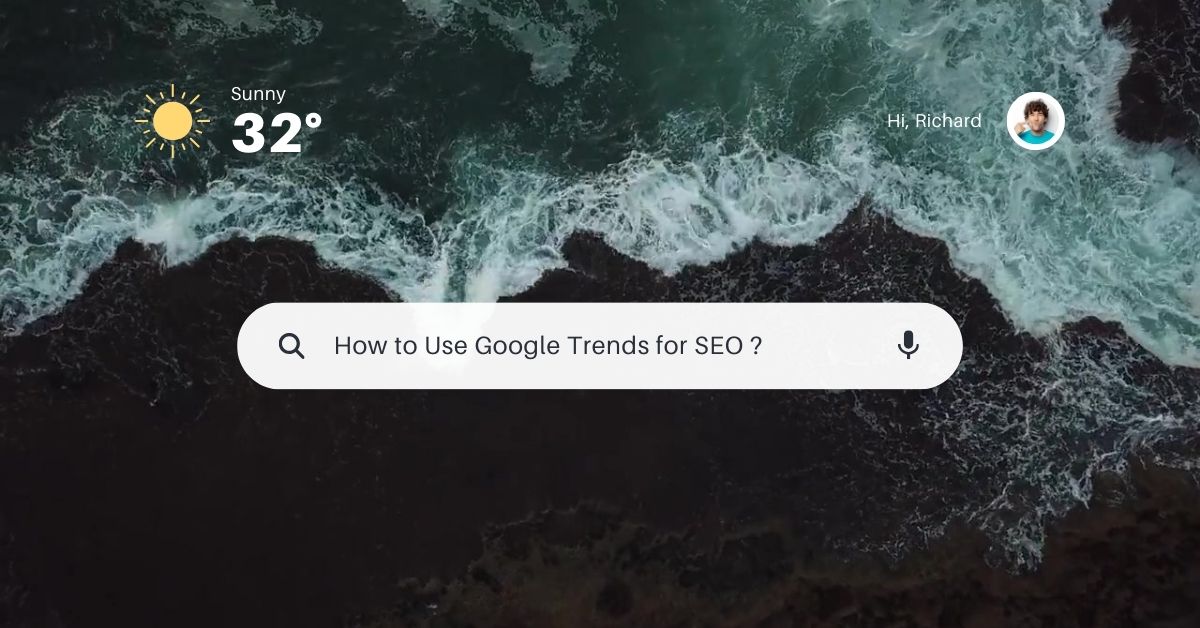
In order to executing a succesful SEO strategy, you don’t exclusively need expensive tools. There are many cost-effective, in fact, free ones that can give you better insights into customer searches and keep your research going.
One such gem is Google trends, a free tool that gives crisp data based on popular searches on Google and YouTube. In this blog, we are going to show you how you can make the most of this resource in enhancing your SEO practices.
How Google Trends Can Be a Powerful Tool for SEO
Here’s how this free tool becomes your weapon to a more targeted SEO strategy:
1. Use it for Topic research
The biggest hurdle while making an SEO content calendar is what topics to pick for creating blogs or landing pages. Some great tools like SemRush and Ahrefs give you an overview of topics used by your competitors, but Google trends provides you with an entire landscape, connected to a keyword.
For example, when you search “dry skin remedies”, you will get broad topics and most asked questions by your audience on Google. This can help you in your creative process and make content pillars based on long-tail keywords for your business.
2. Analyze Search Volume Trends
When you enter a keyword into Google Trends, you can observe its popularity over the past year. This tool is extremely useful for two main reasons:
- Firstly, it allows you to identify keywords that are gaining traction. This enables you to create content focused on terms that an increasing number of people are searching for.
- However, if you relied solely on a conventional keyword research tool, you would only see the basic search volume data without any trend insights. This makes it a prime keyword to target right.
- Secondly, Google Trends can help you steer clear of keywords that are losing popularity, prompting you to consider alternative keywords.
3. Find related keywords
Some people consider LSI (Latent Semantic Indexing) to be a crucial part of their SEO strategy. It can also be helpful as mentioning related terms to your keywords instead of keyword stuffing can help you target better.
When you search any keywords, you can look into the related queries. For some topics, the tool may show “breakout”. This term indicates that Google lacks sufficient search volume data to provide a significant percentage difference between “before” and “after.”
Now, these breakout topics are a goldmine, since they are not competitive yet. You can create content on these breakout topics to be ranked higher without any backlinks, before the keyword becomes widely popular.
When the keyword eventually gains mainstream attention, you’ll already be well-positioned at the top of Google’s search results. However, some breakout keywords may only be temporary trends, experiencing a surge in popularity for a few months before fading away completely. I
4. Enrich Your Local SEO
Google Trends gives you a fresh insight into local search trends by using the “Interest by subregion” feature. This tool reveals the trend of a specific keyword across various states, cities, and subregions.
For instance, if you own a bakery and are thinking about introducing a new range of desserts, you’ll notice from Google Trends that the search volume for this keyword fluctuates significantly across different states.
5. Steer Clear from Fleeting Trends
Not everything on Google Trends is meant to stay trending, but you can lookout for topics or terms that may not do as well as their other counterparts.
With this tool, you can identify keywords that are decreasing in popularity. You can specify a custom timeframe to investigate a topic. If you notice that a keyword is receiving fewer searches, it’s wise to refrain from using it, as it is unlikely to attract many visitors to your site.
Maximise Your SEO Results with Google Trends Data
Google Trends offers valuable insights for your business, whether you’re looking into keywords, monitoring competitors, or developing a local SEO strategy. However, you can enhance your analysis by expert guidance from professionals from an SEO agency in New Zealand for a more comprehensive view of your market.




